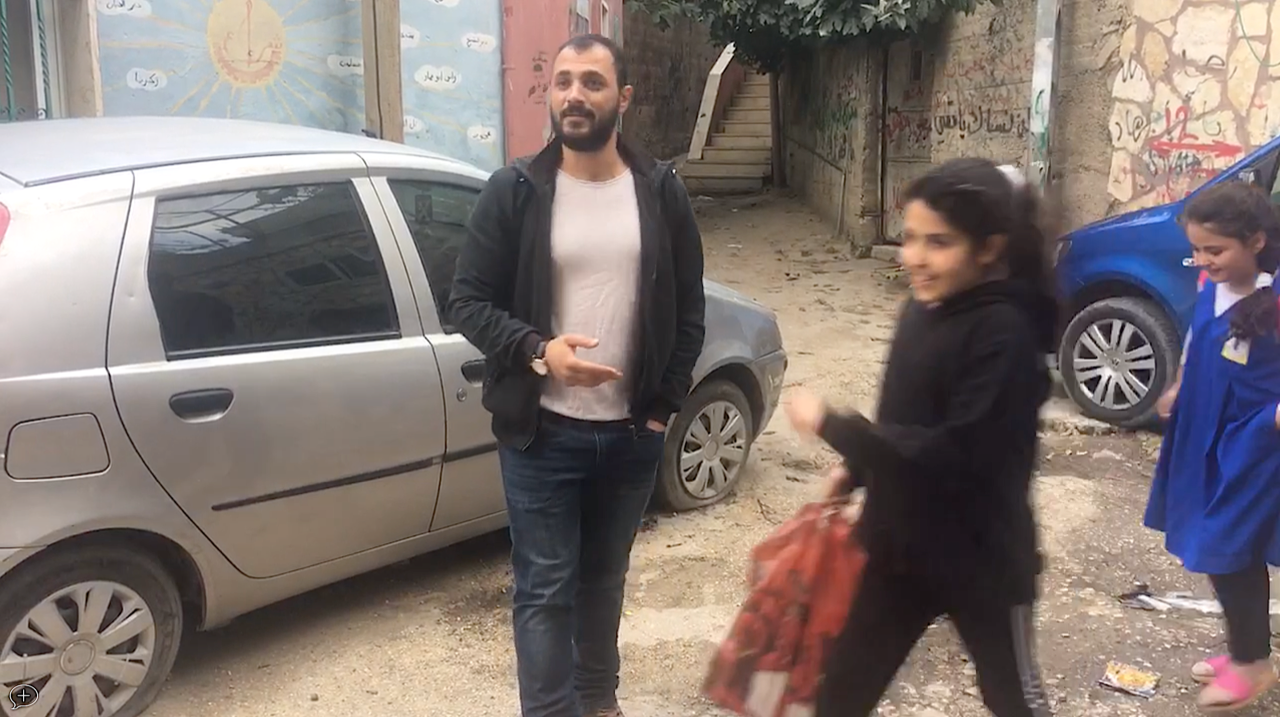Refusing to Fracture
Although I and many other delegates on this trip have already written about the sheer resiliency of our various Palestinian hosts, the past few days have left me thinking about one particular aspect of that resiliency: the unrelenting warmth and generosity of everyone I’ve encountered.
In light of the many atrocities committed against Palestine by white westerners, I would have expected to be met with at least a hint of healthy suspicion. Instead, I’ve been amazed at the outpouring of generosity and hospitality. I can hardly imagine ever being so unguarded in the context of the occupation. Honestly, I can barely picture being that unguarded in general.
On a walk through Deheisheh Refugee Camp, a target of many Israeli attacks and an even greater target of psychological warfare, I was greeted enthusiastically by no fewer than 20 young children and 10 adults. Back home in New York, that’s unfathomable.
I have this theory (although I’m clearly not the first) that growing up in a colonial nation robs us of some of our capacity to appreciate people and things without consuming them and extracting their value. Zionists, for example, apparently can’t drink water without hoarding it (80% of Palestinian water goes to Israelis), can’t live on land without claiming it as theirs alone (the difference between immigration and colonization), and can’t love thine Palestinian neighbors without controlling every last detail of their daily existence.
I myself had trouble so much as harvesting olives on a Palestinian farm in a way that didn’t privilege efficiency over the actual well-being of the trees. As we all went around vigorously shaking tree branches and encouraging the olives to fall, the Palestinian farmers had to call out and remind us to treat the trees with kindness.
In a certain sense, olive trees want to give us their olives, because it enables their seeds to return to the land for new trees to grow. What they don’t want is their branches split and damaged by some white westerners who only know how to extract and exploit.
Of course, when I suggest that Palestinians are kinder and friendlier than most Americans I meet (and definitely most Israelis), I don’t want to cast Palestinians as somehow more “pure” or “uncorrupted.” That would simply perpetuate colonial binaries. So it’s important to note that Palestinians and other colonized people are not immune to toxic, oppressive dynamics. On the contrary, Muhammad, representing Al-Qaws for Sexual & Gender Diversity in Palestinian Society, explained how certain younger Palestinians may use the sexual and gender oppression of others to cope with their own experiences of trauma. Moreover, we’ve learned over the past week how Israel has partly succeeded in sowing division and tension between Palestinian minority communities, notably between Druze and non-Druze, and between Gazans and non-Gazans.
Still, despite these internal tensions, we met plenty of Palestinian activists, whether Druze, Gazan, Christian, queer, etc., who refuse to let colonial divisions stand in the way of Palestinian liberation. And from my interactions with folks throughout Palestine, it seems that a great many more Palestinians are unwilling to let Zionists corrupt their ways of relating to land and to other humans. While these Palestinians are by no means “untainted,” they fight every day to resist the taint of Zionism. Even as Israelis continue to divide and consume Palestinian lands, Palestine refuses to fracture its heart.
Returning home to New York, I’m reminded that we’re all fractured. We exploit and are exploited by virtue of our intertwined colonial histories. Maybe we could learn a thing or two from those Deheisheh refugees: their stubbornly infectious sense of hope and their embodiment of a brighter, kinder future.

